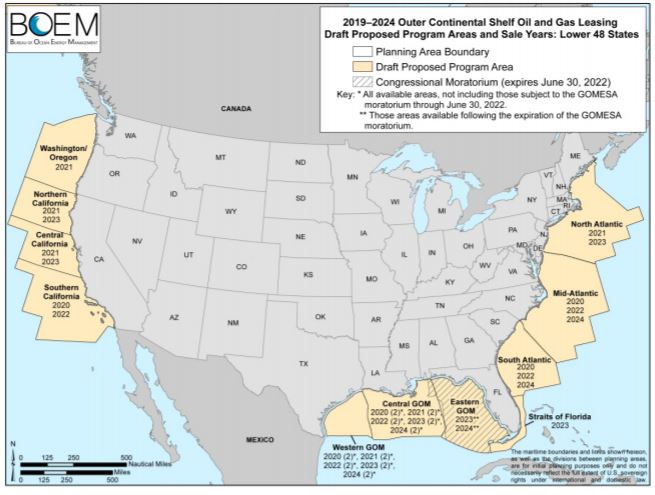Trump Administration Proposes Offshore Drilling For Ga. Coast

A proposal announced Thursday would open nearly all federal waters to oil exploration, including off the Georgia coast.
Chris Carlson / Associated Press file
U.S. Secretary of the Interior Ryan Zinke announced a proposal Thursday to open up nearly all federal waters to oil exploration, including off the Georgia coast.
Aside from marine sanctuaries, the only place off-limits for oil drilling under the draft plan is an area in Alaska.
“It is better to produce energy here and never to be held hostage by foreign entities for our energy needs,” Zinke said in a call with reporters.
In the draft proposal, the first lease sales off the Georgia coast would be in 2020. All oil exploration would be at least three nautical miles – a little more than three miles – offshore, where federal jurisdiction begins.

Some Georgia politicians have supported proposals for bringing oil development — and jobs — to the coast. In an emailed statement, Rep. Buddy Carter said he has always supported “an all-of-the-above energy approach.”
“That includes exploring offshore energy development,” he said. “I applaud the Trump administration for taking this next step toward energy independence today. However, moving forward, any energy exploration must be done in a way that does not harm our beautiful coastline.”
Other politicians, along with environmental groups, have expressed concern about impacts to the environment and tourism. Cities including Savannah, Brunswick and St. Marys have passed resolutions opposing oil exploration and drilling.
“The Georgia marshes are a treasure and obviously important to the people who live there, important to the fishing industry, important to everyone who cares about the Georgia coast,” said Sierra Weaver, a senior attorney at the Southern Environmental Law Center. “That’s all at risk with offshore drilling.”
In 2016, the Obama administration decided to take most of the Atlantic off the table for drilling. Last April, President Donald Trump directed the Department of the Interior to reverse that decision.
“We believe the Obama administration made the right decision and made a decision that was based on all the evidence before it,” Weaver said. “I think it’s going to be really hard for the Trump administration to adequately justify reversing course when nothing has changed.”
She said if the Trump administration can’t adequately justify the change in plans, her organization will sue.
There is now a 60-day public comment period on the proposal. The Department of the Interior is holding public meetings around the country during that time, including one in Atlanta in late February.








